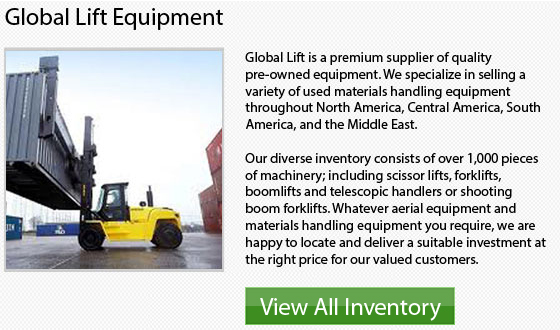
The outdoor forklifts produced by Mitsubishi have earned a great reputation of operating at peak performance. You do nevertheless need to take good care of it and do frequent repairs in order to get the longest life possible from your equipment. If you take good care of your forklift it would perform in an optimum way and as efficiently and safely as possible. The following tips below would help you increase engine life and maintain engine performance.
Pre-Shift or Daily Checks should be performed: By frequently inspecting all of the fluid levels in the engine, in addition to the other related items described within the forklift's Maintenance and Operation Manual, you would significantly maintain your equipment's performance and longevity.
A PM or Planned Maintenance Program must be established and adhered to: A good planned maintenance program will really follow the engine maintenance schedule which the manufacturer has set out. Some of the major things the planned maintenance program includes are frequently replacing appropriate filters and the engine oil.
It is also really helpful to implement an engine oil analysis. This analysis would breakdown all the materials and elements found in the oil. Like for instance, unusually high amounts of silica or metals can indicate there may be a failed component inside of the engine. Moreover, these findings could indicate that the engine is ingesting dirty air. If these issues are dealt with and investigated early, you would really increase the overall engine life and help reduce repair costs.
Check and Change the Air Filter: Weak engine performance or poor fuel economy could be the end result if you overlook to check and or replace the air filter in the engine on a regular basis. Like for example, engine life could be significantly reduced if you are operating with a restricted air filter which enables unfiltered and dirty air to be pulled into the engine.
Check the Cooling System: The life of an engine and its performance could be greatly affected by the cooling system. The engine is engineered and designed to work within a specific temperature range. When that range is exceeded, damage could occur to the internal parts of the engine. Frequent maintenance must consist of replacing the engine coolant also. Failure to perform this type of maintenance could cause damaged engine components, specially regarding any aluminum parts.